Changes to Boxless Bike Delivery
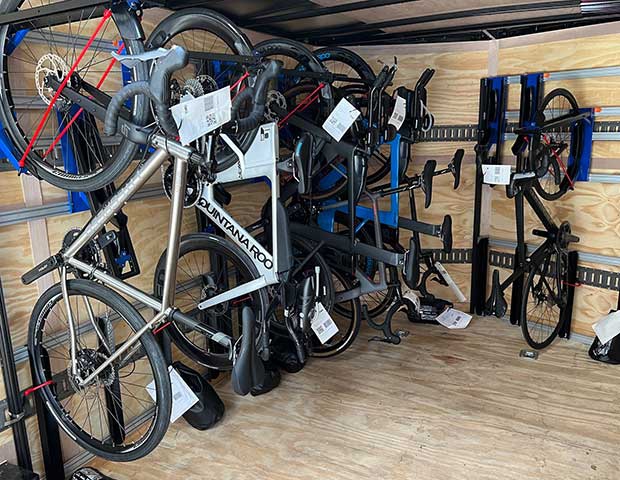
It’s no secret I’m enthusiastic about boxless, complete bike delivery when the transaction is between you and the bike company. Ideally, that hand-delivered bike is ready to ride and set up to your fit coordinates through programs like Quintana Roo’s Fit Ready. As an alternative the bike maker delivers the bike to your bike fitter. Either way, no box and no assembly.
To date, the main purveyor of boxless delivery has been Kitzuma, which just announced it is shutting down its service over the winter. Its intention is to recommence delivery during the “peak season” of next year. This is a blow to a logistics model on which I’m bullish. What does Kitzuma’s temporary shutdown portend for boxless, white glove delivery of bikes?
Quietly, for the past several months, a new service has stepped into this arena. It’s THRU, and it’s a companion brand to TriBike Transport. Both are owned by Marc Lauzon. I should disclose that Slowtwitch has a relationship with TriBike Transport, and I have a longstanding friendship with Lauzon. His brand is familiar to triathletes and in a just-concluded poll of Slowtwitchers about 3 in 10 said they use or will use TriBike Transport for any IRONMAN race in North America when the contestant must fly to that race.
THRU has already been shipping bikes boxless and complete for Quintana Roo and other brands. The heart of THRU’s tech is its racking system both in-truck and in-house at THRU’s client locations. Their system allows bikes to travel without any disassembly (e.g., front wheel removal, photos are included here). This saves, according to Lauzon, a significant amount of time, substantially increasing gross profits. THRU reports it has picked up business this week from manufacturers otherwise left with no boxless alternative.
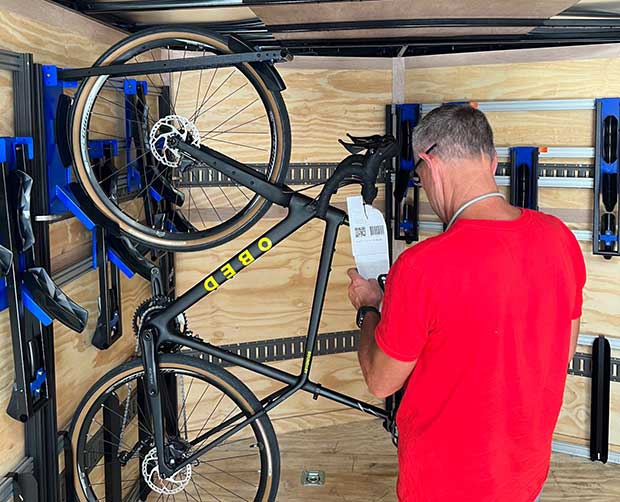
But Kitzuma’s business is nationwide, with pick-ups from manufacturers occurring (or that did occur) weekly. THRU is regional, and intends to build a nationwide network to equal to what Kitzuma now enjoys. TriBike Transport already has a nationwide – and international – network built, shipping the same product in the same condition (built bikes). But the model is not transferable to THRU. Imagine an airline flying first where routes are most profitable, adding routes over time. That’s the process THRU faces. Lauzon told me that by spring of 2023 he expects to service about 80 percent of the U.S. population.
Will Kitzuma return to service in the spring? As background, Kitzuma was purchased almost a year ago by Australian company BikeExchange (ASX: BEX). Here is a quote from that company’s Quarterly Appendix and Activity Report released October 31, 2022: “During Q1 Fy23, Kitzuma consumed $1.4m of working capital, straining group cash reserves. In light of this, a decision was made to pause Kitzuma’s bike delivery service over the seasonal low period of winter in North America. This will allow the company to review Kitzuma’s operational and funding model prior to the Northern Hemisphere’s peak period of spring and summer 2023. The expected impact of the pause in operations will be a reduction in logistics revenues, a reduction in cash outflows, and reduced group losses.”
I think it’s legitimate to ask how Kitzuma will resume business for next year’s “peak period” when it “strained group cash reserves” during this year’s peak period: July, August and September. According to BikeExchange the pause is not simply to cut losses during a slow period but to “review Kitzuma’s operational… model.” I will wager that Kitzuma will return to service in 2023 but as Kitzuma 2.0 and we’ll see what operational changes allow Kitzuma to operate profitably. I asked Essick about this and he referred me to statements he’s already made and to upcoming press releases “to provide an update to the market.”
There are more layers to this tale. Essick was a longtime general manager at TriBike Transport and there is current litigation regarding “confidential and proprietary” information.
My prediction (solely my opinion) is that these are bumps in the road toward a better way not just to deliver a bike, but to retrieve one. Whether you’re Quintana Roo, ENVE or Ventum retrieving a customer’s bike for warranty work; or The Pro’s Closet fetching a bike purchased from a consumer; retrieval might be the most important part of this service model. Boxes are old tech and it's silly to assume customers want to box bikes for return and to insist that they do it professionally. Boxless delivery and pick-up would be healthiest with multiple service providers and, if fortune prevails, we’ll have that for most in the U.S. market by spring of next year.



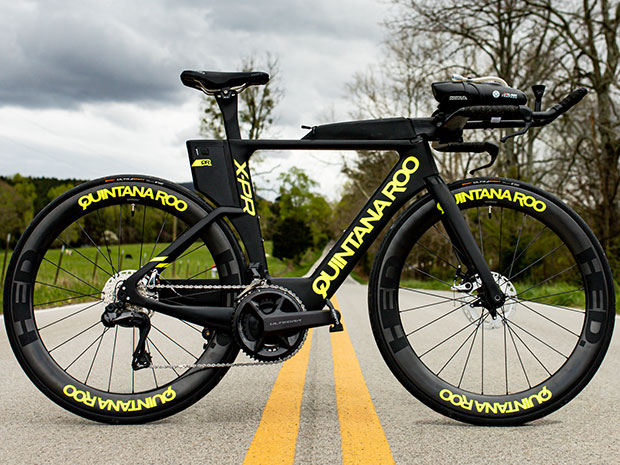
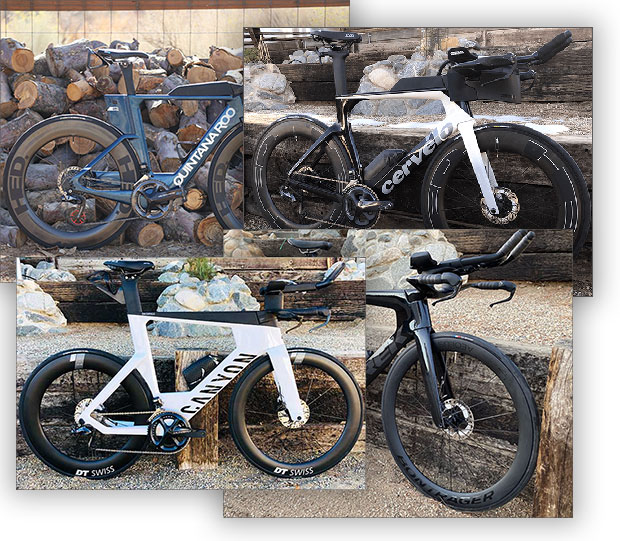
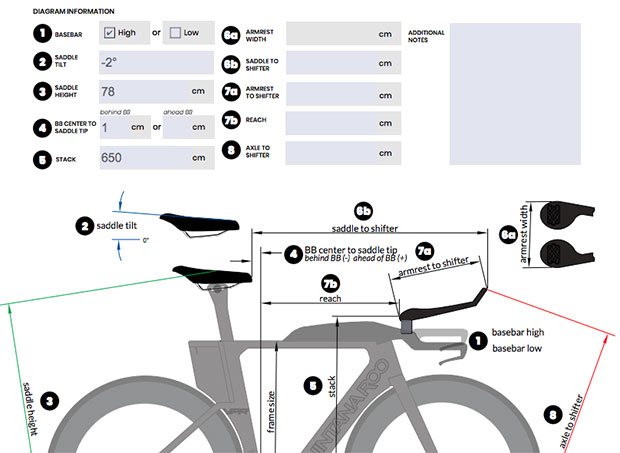

Start the discussion at forum.slowtwitch.com